02.26.2021
Throughout Black History Month, we asked Comets what the month means to them.
Here’s what they had to say:
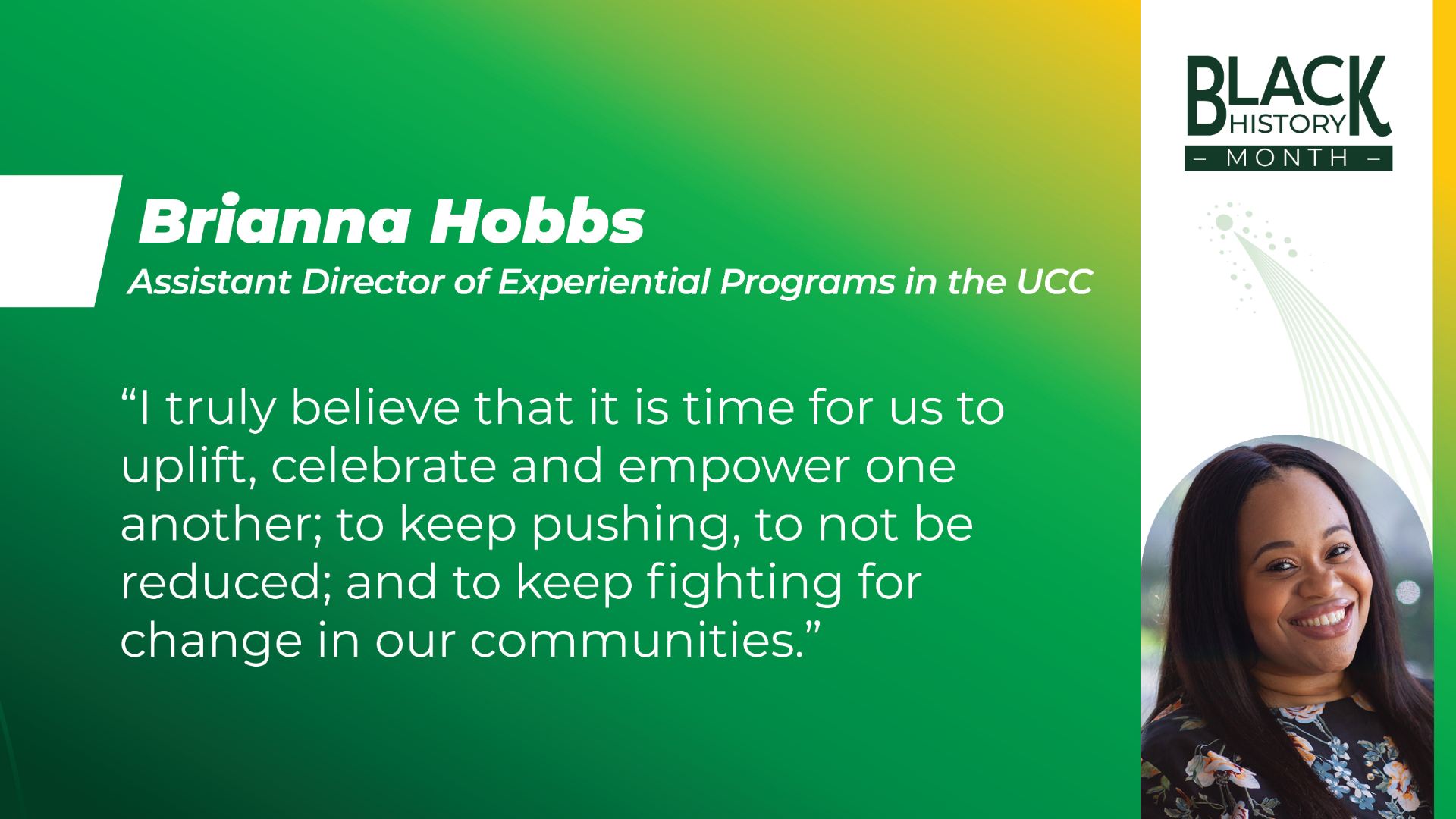
Assistant director of experiential programs, University Career Center
“Black History Month now more than ever is a time to reflect, recognize and give reverence to Black and African American leaders past, present and future. It is easy to get discouraged in light of the events of the past year. To quote one of the greats, Maya Angelou said: ‘I can be changed by what happens to me. But I refuse to be reduced by it.’ I truly believe that it is time for us to uplift, celebrate and empower one another; to keep pushing, to not be reduced; and to keep fighting for change in our communities.”
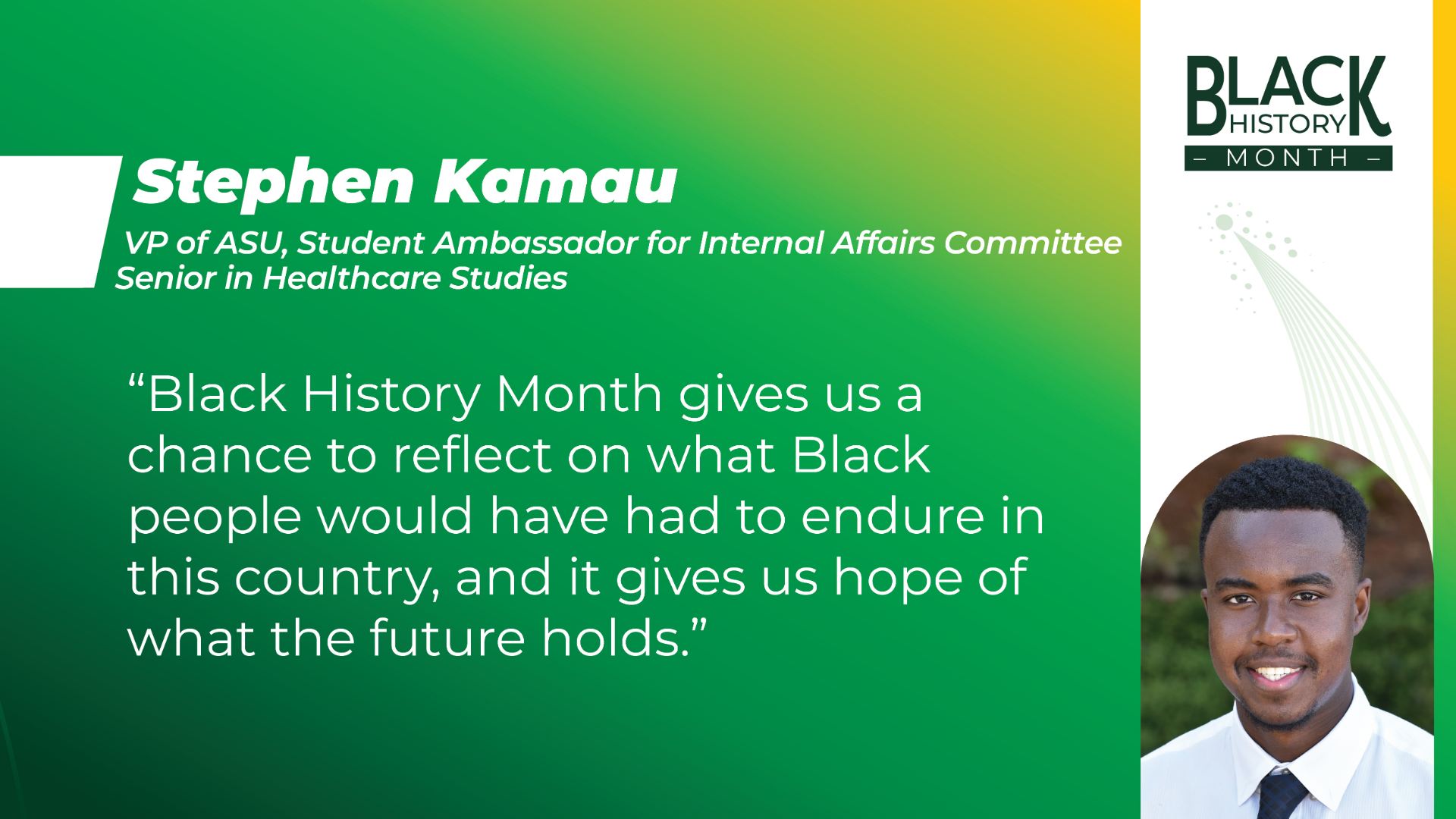
Healthcare studies senior and vice president of the African Student Union
“Black History Month gives us a chance to reflect on what Black people have had to endure, and it gives us hope of what the future holds. Remembering the sickening events of racial injustice that occurred last year was a stark reminder of where our country stands in terms of racial equity. However, I’ve also seen many people I know from different walks of life rally together to root out the disease that is racism, which gives me hope. This month serves to acknowledge our progress, yet raise awareness of the work that needs to be done.”
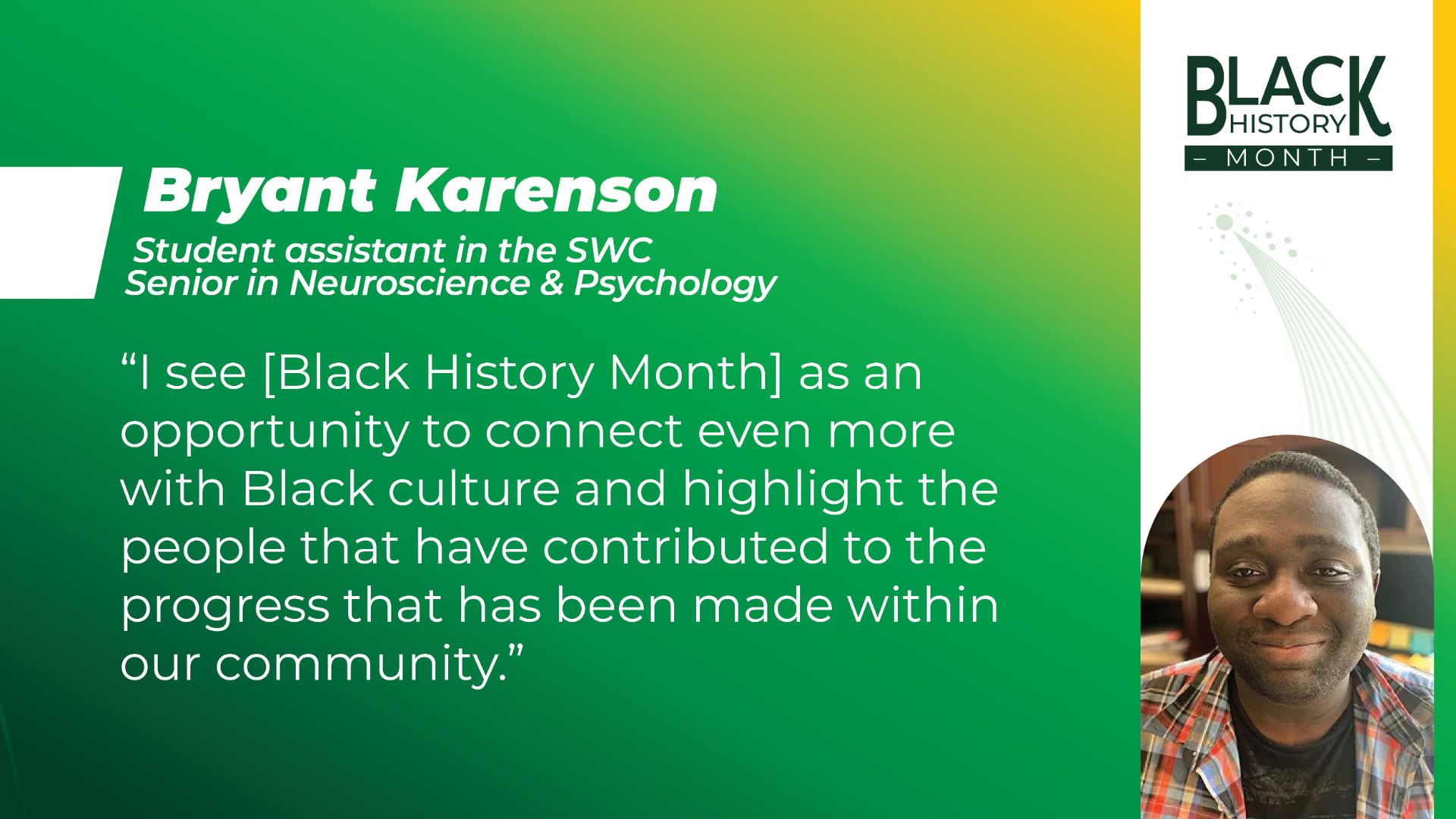
Neuroscience senior, student assistant in the Student Wellness Center
“Black History Month gives a chance for us to embrace the work we’ve created and feel heard in the world. I see it as an opportunity to connect even more with Black culture and highlight the people that have contributed to the progress that has been made within our community. Especially given the events last year, I use this month as an outlet to freely exist and feel comfortable in my own body.”
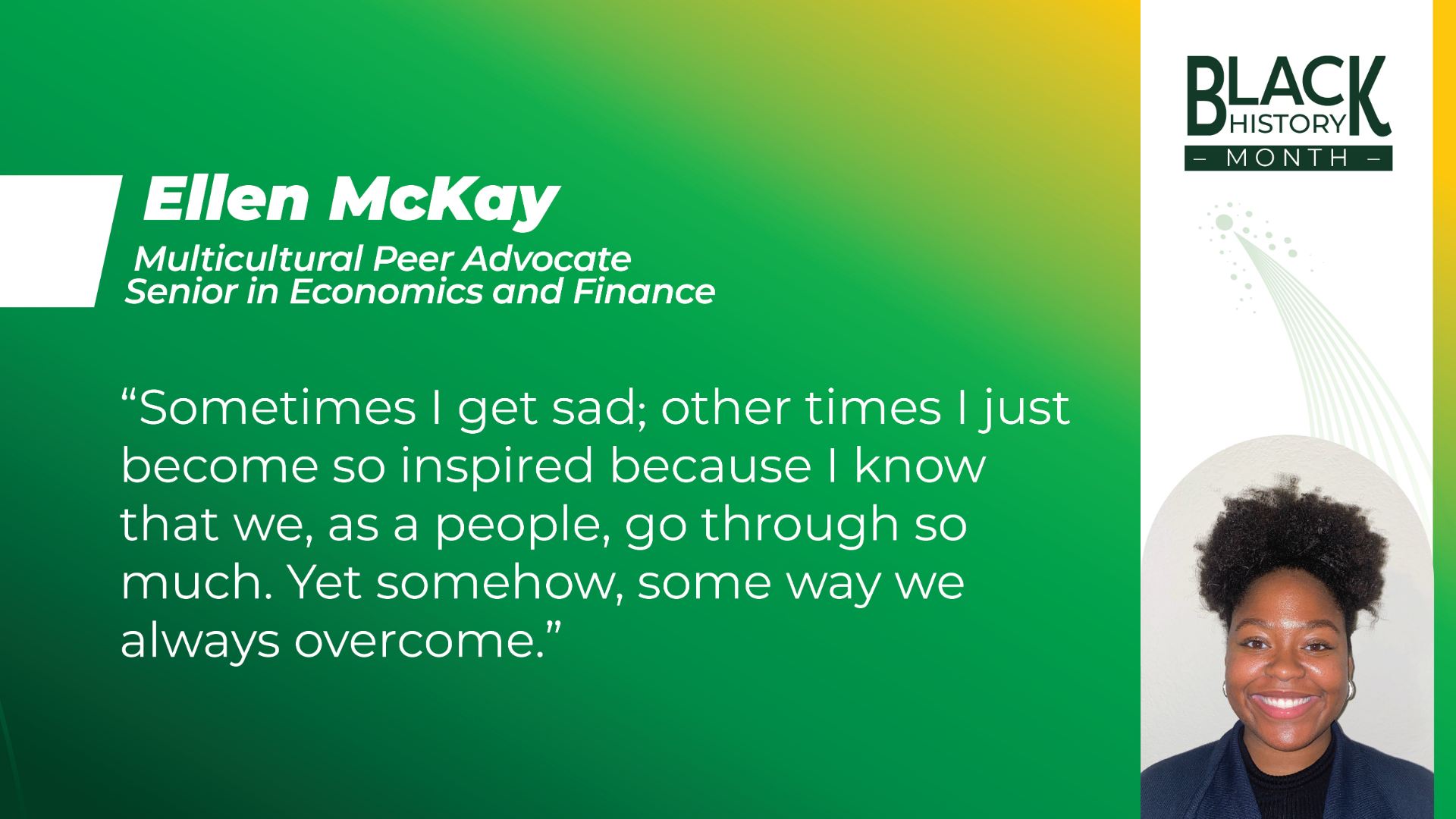
Economics and finance senior
“Black History Month means a lot to me because our history is so rich. I enjoy learning about it because there are a lot of hidden truths. It tells us a lot about the things that go on in our world today, so when I do learn about these truths it just does something to me. Sometimes I get sad; other times I just become so inspired because I know that we, as a people, go through so much. Yet somehow, some way we always overcome. Black people are so beautiful. I just want myself and others to know that and learn about what truly makes us beautiful — scars and everything. I think Black History Month gives that opportunity to learn, and I am so glad that we’re celebrating.”
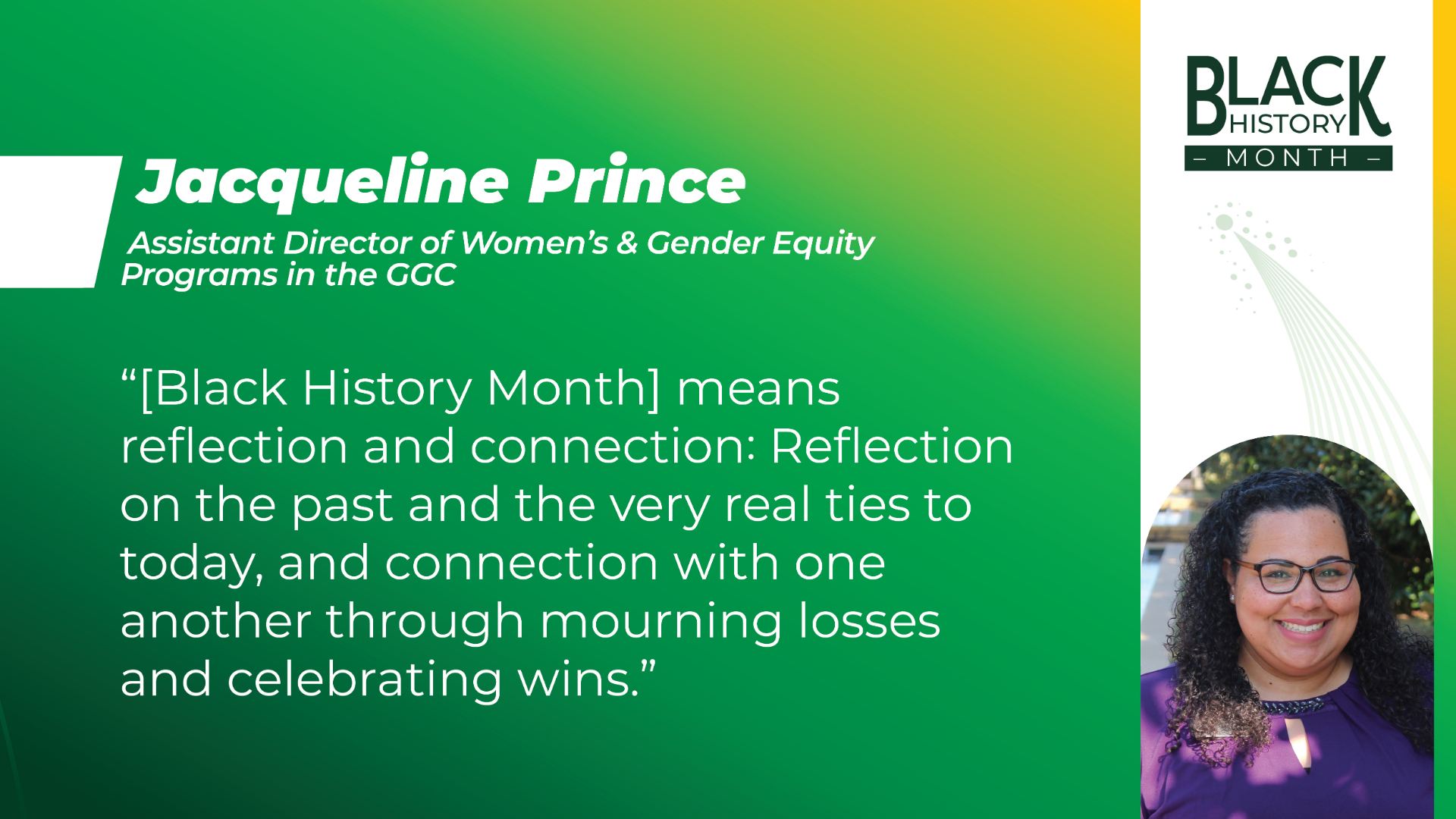
Assistant director of women’s and gender equity programs, Galerstein Gender Center
“Black History Month is layered for me now more than ever. It means reflection and connection: Reflection on the past and the very real ties to today, and connection with one another through mourning losses and celebrating wins. The layers of Black History Month also contain the rich tapestry that is blackness: queer, trans, womxn, disabled, etc. The various combinations of identities, in addition to blackness, are so important to recognize and embrace, as well, so that we celebrate the diversity of Black voices during BHM. I observe BHM by recognizing the gaps in my education of Black figures and culture. I resist feeling shame for not knowing things, because that shame belongs to those who’ve erased or neglected Black contributions to American life and culture.”
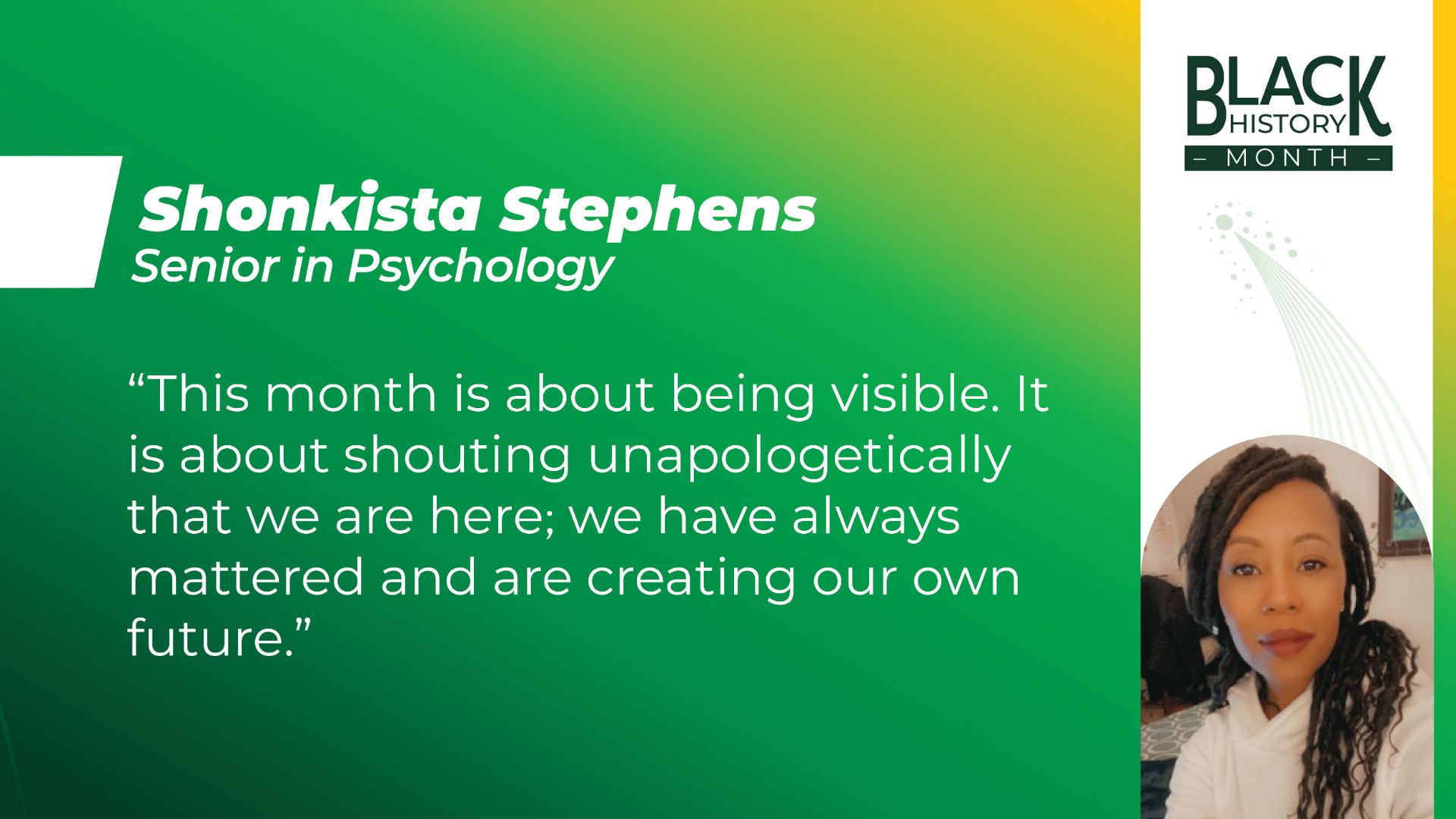
Psychology senior
“Black History Month for me represents the desires of all Black people to be seen as unique individuals as contributors to the overall betterment of the American way of life. This past year we came together, objecting to centuries-old injustices, taking back our inventions, sayings, dances, etc. This month is about being visible. It is about shouting unapologetically that we are here; we have always mattered and are creating our own future.”
02.22.2021
Dr. Salena Brody has been teaching a University of Texas at Dallas course on the psychology of prejudice since 2005. Events of the last 12 months have made understanding the mechanisms behind racism, as well as sexism, xenophobia and classism, all the more crucial.
Brody, a professor of instruction in psychology in the School of Behavioral and Brain Sciences, describes the course as involving “just as much history as it does psychology.”
“One of my goals is for students to consider the historical factors that contributed to intergroup conflict and the systems that were created to justify prejudice,” she said. “Each student comes in to the class with information about their own group’s history, and other students may have never been exposed to these stories. It’s difficult to have a worthwhile conversation if we’re not on the same page to start with.”
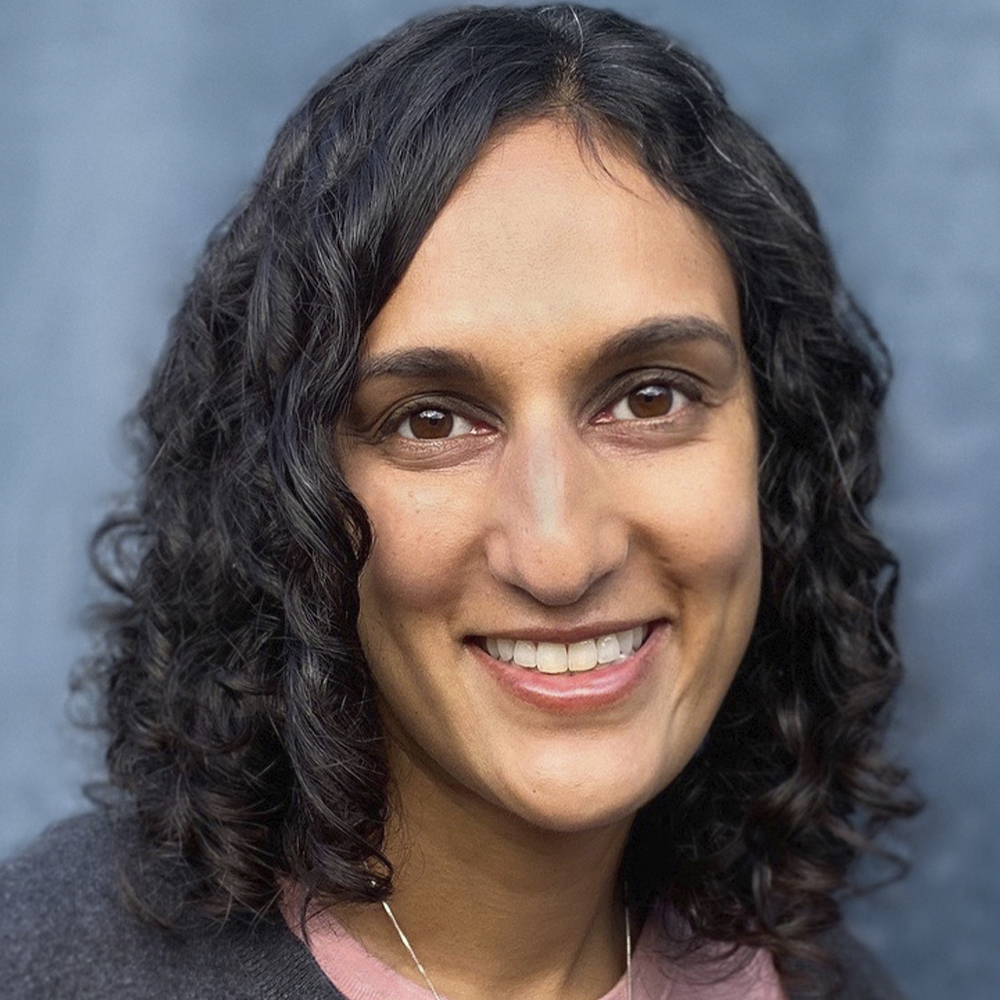 Dr. Salena Brody (photo by Marisa Green)
Dr. Salena Brody (photo by Marisa Green)
While her psychology of prejudice course has always taken cues from current events, Brody noticed a slight change in the students who took her class in 2020 as compared to earlier years’ cohorts.
“The issues we have faced in 2020 — including racial violence, police brutality and white supremacy — are not new phenomena,” she said. “However, many students had a sense of urgency to respond personally, to act with intention and to engage outwardly with this content. I heard more stories of students having difficult dialogues with friends, family, neighbors, co-workers and even strangers.”
Aida Maldonado, a senior studying speech-language pathology and audiology, emphasized the course’s “relevance to the changing times and culture we are presently experiencing.”
“The truth and ugliness of history aren’t sugar-coated for us,” she said, “but at the same time, we’re taught to be hopeful and fight for change.”
Maldonado added that the class encouraged her to “examine my biases on a deep and constant level.”
“I have learned to be a better communicator, a better writer and most importantly, a better person,” she said.
Senior psychology student Willesha Johnson described the atmosphere in the class as “very open and respectful.”
“Everyone has the opportunity to share how racism and prejudice have impacted their lives as well as discuss current events,” she said. “Bringing together students from many backgrounds, we were able to learn about each other’s personal experiences.”
Brody acknowledged that news coverage of racial violence incidents occurring both near and far away can necessitate extra care for students. Many of them described feeling exhausted and experiencing trauma.
“It was important to me to recognize that the feeling of awakening and burgeoning activism some students were experiencing was happening alongside some very painful experiences,” she said. “More so than in other years, it seemed urgent to name these dynamics and offer support, compassion and care for Black students during this time. Non-Black students expressed care for their peers beautifully as well — finding ways to connect, give space and dig into course content being mindful of their peers.”
Brody said that her course demonstrates that difficult, uncomfortable conversations can yield really powerful results.
“When you take the time to build relationships with people who have different perspectives and identities, and you’re committed to being together in that community, some really magical things can happen,” she said.
After completing Brody’s spring 2020 course, several students researched organizations devoted to creating change. They organized to raise more than $500 for Campaign Zero, which develops policy solutions aimed at reducing police violence that are informed by data, research and human rights principles.
“This commitment to engaging outwardly with course content reveals to me that our students have exactly what it takes to understand and address complex social problems and to serve as leaders in their communities,” Brody said.
–Stephen Fontenot
02.15.2021

This year’s “Aiming for the Stars” African American Male Academic Bowl competitors answered quiz questions online and cheered for each other through the livestreamed event’s comments section instead of in person.
Despite the move to a virtual format, organizers made the 12th annual academic bowl, usually held at The University of Texas at Dallas, as close to the on-campus event as possible.
“We refuse to let COVID-19 stop us from having this bowl,” said Arthur Gregg, assistant vice president for multicultural affairs at UT Dallas, director of the Multicultural Center and academic bowl steering committee member.
Highlights from the Jan. 30 event, including a pep rally and speakers, can be viewed here. The competition rounds, which do not appear on screen, were held separately.
Typically, more than 100 middle school contestants from dozens of teams visit campus to compete for trophies and prizes in the annual “Jeopardy!”-style competition, featuring questions about math and African American history. This year’s scaled-down event included seven local teams representing Skyview Elementary School in the Richardson Independent School District, Staley Middle School in the Frisco Independent School District and an independent team called the Math Eagles led by a parent volunteer from Allen, Texas.
After several rounds of competition, the Math Eagles team was declared champion. Team members received trophies and Bluetooth headphone systems donated by the UT Dallas Tech Store.
The African American Male Academic Bowl is hosted by UT Dallas’ Office of Diversity, Equity and Inclusion, along with the nonprofit Project Still I Rise. The event featured guest speaker Kelvin Walker, CEO of the Dallas Citizens Council, and remarks from UT Dallas President Richard C. Benson.
Next year’s event, which organizers anticipate will be on campus, will be Jan. 29, 2022.
“Start preparing for next year’s bowl,” Gregg said. “We’re going to be back.”
–Kim Horner
Try your hand at some of the sample questions from the African American Male Academic Bowl:
1. Who was the first African American to appear on a U.S. postage stamp?
a. Harriet Tubman
b. Jackie Robinson
c. Booker T. Washington
d. Dr. Martin Luther King Jr.
2. Which of these honors was Dr. Martin Luther King Jr. not awarded?
a. Presidential Medal of Freedom
b. Freedom Award
c. Congressional Gold Medal
d. Nobel Peace Prize
3. Who was the first African American head coach in the National Football League?
a. Dennis Green
b. Tony Dungy
c. Art Shell
d. Fritz Pollard
02.01.2021
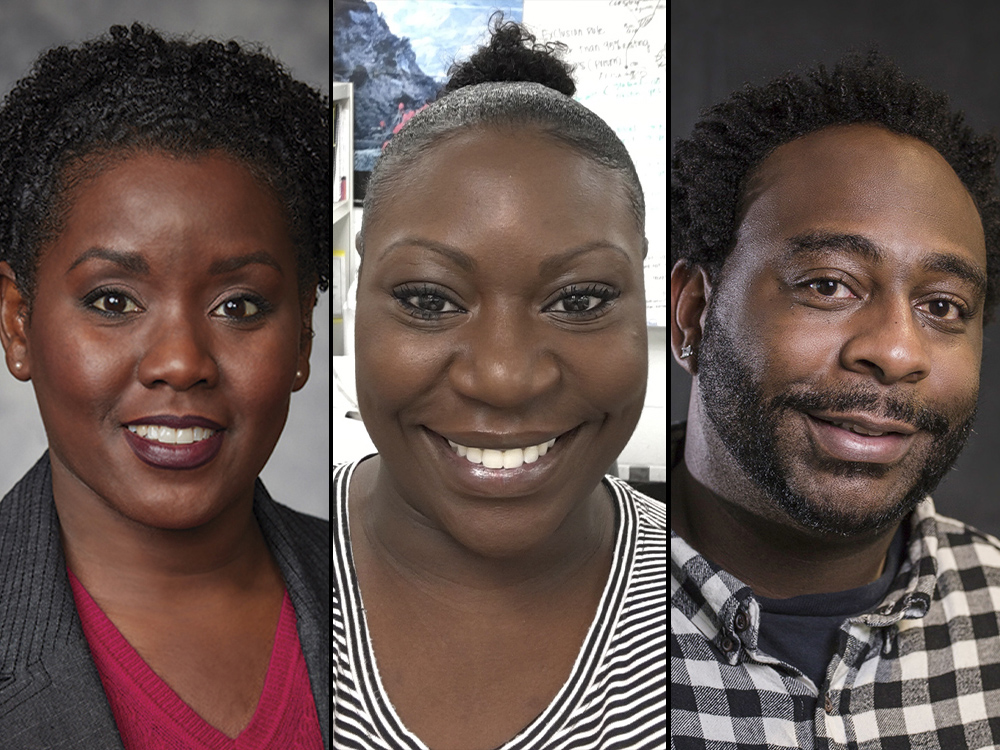 From left: Dr. Nikki Delk, Dr. Bianca Mason and Dr. Michael Burton
From left: Dr. Nikki Delk, Dr. Bianca Mason and Dr. Michael Burton
Three University of Texas at Dallas researchers were named to the list of 1,000 Inspiring Black Scientists in America published by Cell Press in December.
Associate professor Dr. Nikki Delk in the School of Natural Sciences and Mathematics, and assistant professor Dr. Michael Burton and postdoctoral scientist Dr. Bianca Mason, both in the School of Behavioral and Brain Sciences, were cited in a catalog intended to “dismantle the myth that outstanding Black scientists make up a small percentage of the scientific community.”
Delk, who joined the Department of Biological Sciences in 2014, is a Fellow, Cecil H. and Ida Green Professor in Systems Biology Science. Her research focuses on inflammation-induced breast cancer and prostate cancer progression and treatment resistance. She earned her bachelor’s degree from Georgetown University and her doctorate from Rice University. She also achieved the rank of captain while serving for four years in the U.S. Air Force.
“When people find out that I am a scientist, they are often in awe,” she said. “Black people, and especially Black women, are underrepresented in STEM [science, technology, engineering and mathematics]. I think one reason why Black women are underrepresented in STEM is because of society’s perception of a scientist. I once surveyed family and friends from different age, race, gender and professional groups on what comes to mind when I say ‘scientist’ and most replied ‘Albert Einstein.’
“Until we expand our definition of a scientist, young Black girls may not consider it as a career choice. The first step is to increase diversity in the field so that young people from all backgrounds have examples to look to.”
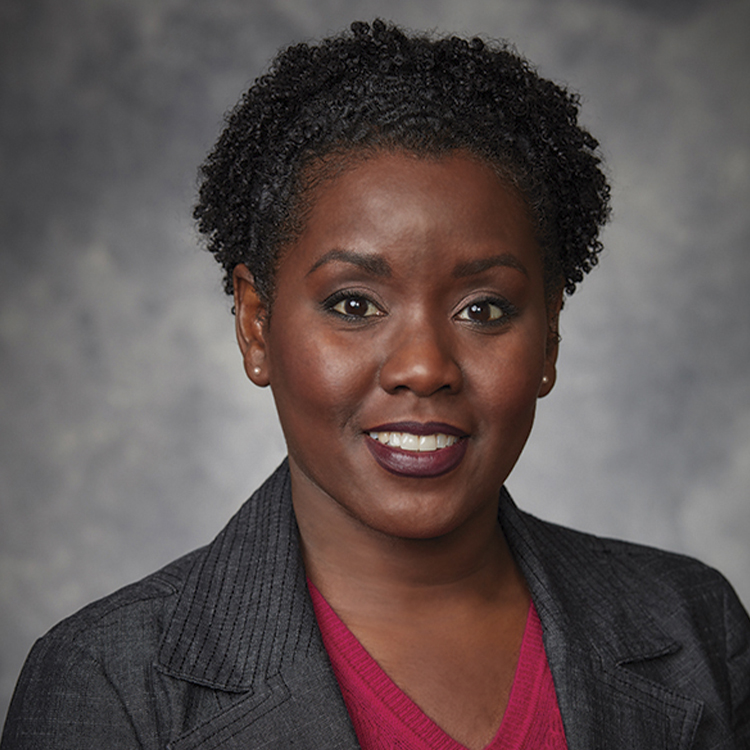 Dr. Nikki Delk
Dr. Nikki Delk
Delk believes that changing that perception for current and future generations will help close the gap, along with programs that help open doors for those in demographics that are underrepresented in research fields.
“I have had the advantage of being at institutions that respect racial and cultural differences and support inclusion initiatives in STEM,” she said. “In addition, during my graduate and postdoctoral training, I benefited from programs that promote diversity in STEM, such as the National Science Foundation AGEP [Alliances for Graduate Education and the Professoriate] program and the National Cancer Institute Center to Reduce Cancer Health Disparities. These programs provide networking and professional development opportunities in a group setting of people with shared cultural and social experiences. I gained a STEM family that has served as a support system throughout my career.”
Delk said that scientists in positions like hers can be a positive influence.
“Now that I am a tenured faculty member at a research institution, I am in a position to make decisions that can have a positive impact on our next generation of scientists, including encouraging and facilitating more young folks from underrepresented groups to pursue a career in science,” she said.
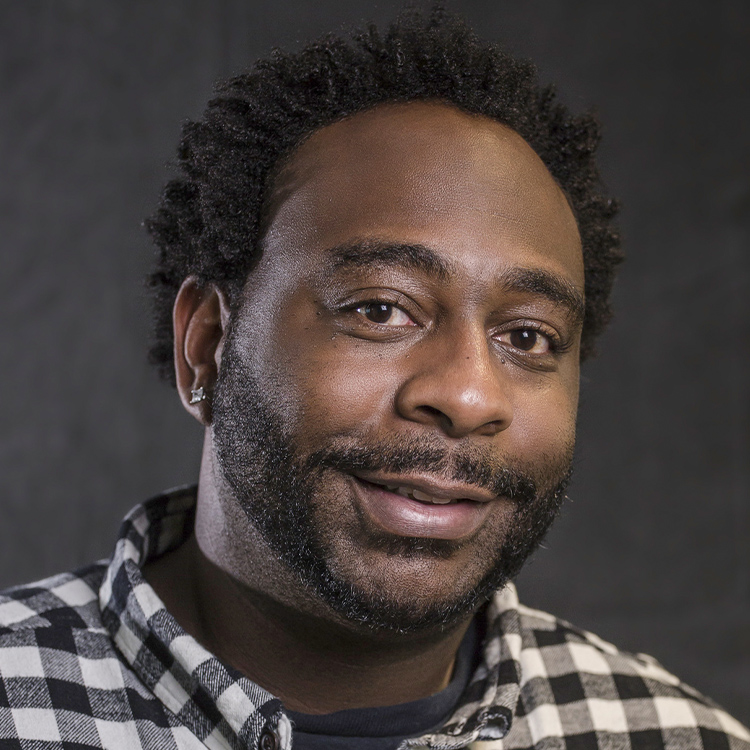 Dr. Michael Burton
Dr. Michael Burton
Burton received his bachelor’s and doctoral degrees from the University of Illinois at Urbana-Champaign. He arrived at UT Dallas as a postdoctoral researcher in 2015 and joined the faculty in 2017. His research concerns how the immune system and nervous system interact to influence pain signaling.
“My journey through academia has been one of discovery and care,” he said. “It was always clear that there are very few people that look like me in the lab and conference rooms. This filled me with trepidation that I would not be understood. However, diversity is at the root of advancement and cutting-edge research. Being a Black scientist now, able to influence future scientists of all races and sexes, is humbling.”
Mason received her doctorate in 2017 from the University of Iowa. Her research aims to understand better the mechanisms of migraine.
“As a Black female scientist, I can say that there will be obstacles in the path to success. Often, I am in a room full of those that do not look like me, and it can get lonely,” she said. “However, I try not to focus on that; I try to embrace what makes me similar to my peers, not what makes me different.
“I am hopeful that I will be in a position to make a difference. Mostly, I stand proudly as I think of the many young girls that will be inspired by me as a Black female scientist. It is my hope to help remove barriers for people that look like me; to help normalize equal representation of races and sexes in the basic sciences.”
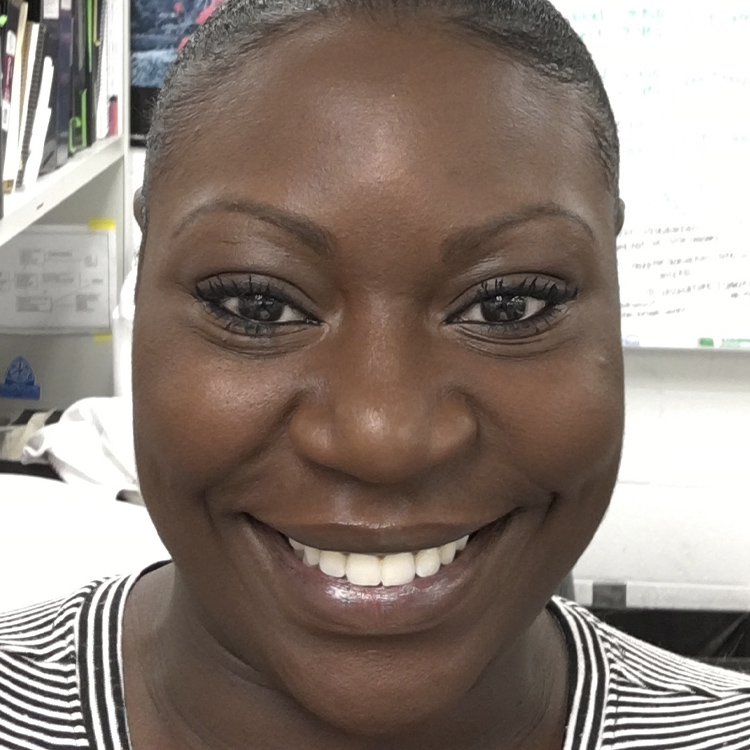 Dr. Bianca Mason
Dr. Bianca Mason
Mason received her bachelor’s degree from Savannah State University, one of the many historically black colleges and universities (HBCU) that provide crucial opportunities for the African American community.
“Like so many Black people, I began my journey at an HBCU. Many people do not realize how important these institutions are when it comes to nurturing, boosting self-confidence and empowering individuals like myself,” she said.
–Stephen Fontenot